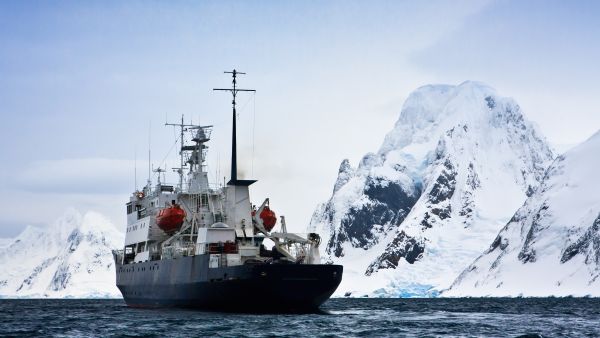New Delhi, May 29 -- India will discuss the new research station it wants to build in Antarctica at the 46th Antarctic Treaty Consultative Meeting (ATCM) being held in Kochi between May 20 and 30. Over 350 researchers and officials from nearly 40 countries are expected to attend the meet.
"The Maitri research station built in 1989 is old and we wish to have a new station there. This is important for our research team. So, we will discuss this proposal and seek approval from member states," said M Ravichandran, secretary, ministry of earth sciences (MoES). But, overall, the most important agenda of the meet is to track climate change impacts, past climate assessments and better monitoring of climate impacts.
The meeting will also see the first-ever discussions on regulating tourism in Antarctica.
"Tourism needs to be regulated in Antarctica. India is driving discussions on this. We need to regulate the number of visitors, areas that can be accessible, areas that need to be protected, seasons when tourism can be allowed and how whereabouts of visitors can be effectively and continuously monitored. We believe this is very important for Antarctica's ecology," said Ravichandran. India's proposal is being backed by like-minded European nations, especially Netherlands. The number of visitors is expected to hit 100,000 for the first time this tourist season (October 2023-March 2024), a 40% jump over the previous record, the BBC reported in January.
Another issue that is likely to be discussed is giving consultative status to Canada and Belarus, which can then have voting rights in the Treaty. The Antarctic Treaty is a multilateral agreement of 56 Contracting Parties signed in 1959. India has been a Consultative Party to the Antarctic Treaty since 1983 along with 28 other countries.
"India has a crucial role in governing Antarctica's scientific exploration and environmental protection. It has the right to propose and vote on decisions and resolutions made during the ATCM in matters of administration, scientific research, environmental protection, and logistical cooperation. Further, it can establish research stations, conduct scientific programs and logistic operations, enforce environmental regulations and access scientific data and research findings shared by Antarctic Treaty members. The Contracting and Consultative Parties are responsible for compliance with the Antarctic Treaty, environment stewardship, promoting scientific research, and maintaining Antarctica as a zone of peace, free from military activity and territorial claims. The ATCM is administered through the Antarctic Treaty Secretariat headquartered in Argentina," MoES said in a statement on May 21.Thamban Meloth, director of National Centre for Polar and Ocean Research, said India has a legal framework to regulate activities in Antarctica, including tourism, through the Indian Antarctic Act enacted in 2022. "The Indian Antarctic Act aligns India's tourism regulations with international standards and collaborates with other Antarctic Treaty nations to achieve common conservation goals," he said in the statement.
Published by HT Digital Content Services with permission from Hindustan Times.








